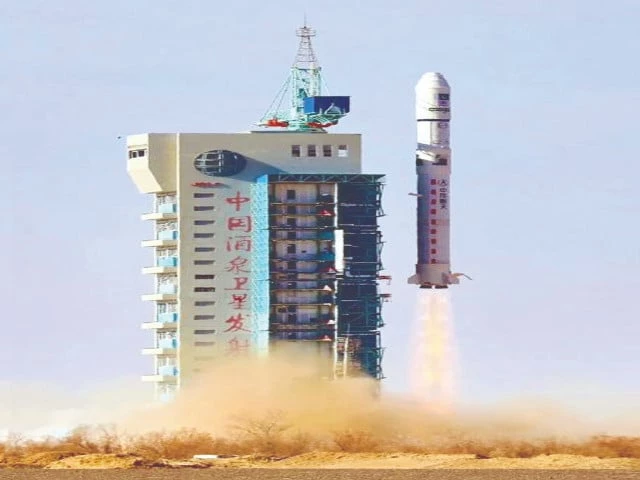Pakistan launches indigenous satellite
Pakistan launches indigenous satellite

Pakistan on Friday launched its first home-made observation satellite on Friday from the Jiuquan Satellite Launch Centre in northern China, the space agency said.
The Electro Optical Satellite (EO-1) satellite will boost Pakistan's ability to monitor and manage natural resources, respond to disasters, and improve urban planning and agricultural development, the Space and Upper Atmosphere Research Commission (SUPARCO) said in a statement.
This type of satellite uses electro-optical sensors to collect data and images of the Earth's surface by detecting and measuring reflected sunlight or emitted radiation.
The development marks a giant leap forward in Pakistan's journey towards self-reliance and technological excellence in space exploration.
The satellite represents the expertise and dedication of SUPARCO's engineers and scientists, showcasing their commitment to advancing space technology.
This milestone strengthens Pakistan's capabilities in space-based observation, enabling effective monitoring and management of natural resources, disaster response, urban planning, and agricultural development.
The EO-1 satellite offers substantial benefits across various sectors in Pakistan, said a news release by Inter Services Public Relations (ISPR) on Friday.
In agriculture, it will enable precision farming by monitoring crops, assessing irrigation needs, predicting yields, and supporting food security initiatives. For urban development planning, the satellite will assist in tracking infrastructure growth and, managing urban sprawl.
In environmental monitoring and disaster management, it will provide timely updates on floods, landslides, earthquakes, deforestation, and land erosion. Additionally, it will support monitoring of minerals, oil and gas fields, glacier recession, and water resources.
This achievement is set to position advanced space technology capabilities at the forefront of national progress and development, aligning with the goals of National Space Policy.
Prime Minister Shehbaz Sharif felicitated the entire nation, including the scientists and engineers, on successful launch of the satellite.
The prime minister, in a social media post on his X timeline, "Soaring higher and higher! Proud moment for the nation as Pakistan proudly launches its first indigenous Electro-Optical (EO-1) satellite from the Jiuquan Satellite Launch Center, China."
He underscored that from predicting crop yields to tracking urban growth, EO-1 was a leap forward in the nation's journey towards progress.
Acknowledging the Pakistan Space and Upper Atmosphere Research Commission (SUPARCO)'s efforts, the prime minister said that the successful satellite launch spearheaded by SUPARCO demonstrated the nation's growing capabilities in space science and technology.
"Congratulations to our scientists and engineers for their dedication and a great team effort!," he said.
China's Long March-2D carrier rocket also launched on Friday two other satellites, Tianlu-1 and Blue Carbon 1, into orbit along with the PRSC EO1, China Aerospace Science and Technology Corporation said in a statement.
"Spearheaded by SUPARCO, this demonstrates our nation's growing capabilities in space science and technology," said Prime Minister Shehbaz Sharif.
Currently valued at $5 billion, the earth observation satellite market is among the fastest growing sectors within the commercial space industry, with Novaspace predicting it to exceed $8 billion by 2033. Countries including the United States, China and India have been building their own government and private satellite constellations to map the Earth.



















COMMENTS
Comments are moderated and generally will be posted if they are on-topic and not abusive.
For more information, please see our Comments FAQ